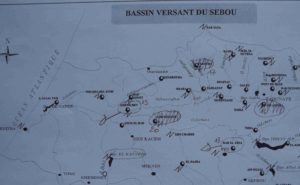The European Bank for Reconstruction & Development (EBRD) is considering offering a loan of up to EUR 40 million to Morocco’s state-owned water and electricity company, l’Office National de l’Électricité et de l’Eau Potable ONEE to finance the rehabilitation of hydropower plants and dams in Morocco, and to help build their resilience to risks associated with climate change. Posch + Partner is contracted to do a detailed assessment of current and projected future (up to 2050) hydrological conditions of ONEE’s hydropower assets by applying climatological models to generate projections of hydrology and implications for energy yield and general asset performance. Skat’s expert provides data and recommendations to be used to inform subsequent studies and assessments.
Location & Country:
Morocco (Casablanca and Rabat)
Project Period:
July 2015
Services Provided:
Assessment, Monitoring & Evaluation
- Collection of hydrological data, information on irrigation, residual flow regulations and technical information on all hydropower stations; report on observations, difficulties, activities to be followed up
Name of Staff involved and functions performed:
Hedi Feibel, climate change and hydrology expert
Name of Client(s):
Posch + Partners, Consulting Engineers
Name of Partner Organisation(s):
l’Office National de l’Électricité et de l’Eau Potable ONEE
Description of the Project:
Collection of information on a) all relevant river basins (e.g. daily flow data) in due consideration of the influence of storage reservoirs, b) general water management and irrigation in the relevant river basins and future development of irrigation abstractions, c) regulations on environmental flow and d) recommended follow-up activities.
Establishing contact with the hydrological directorate of the Ministry; provision of required data and information for the application of climatological modelling.
Results: comprehensive set of data and information and of a report on observations, difficulties, activities to be followed up, both together providing the basis for climatological modelling.




